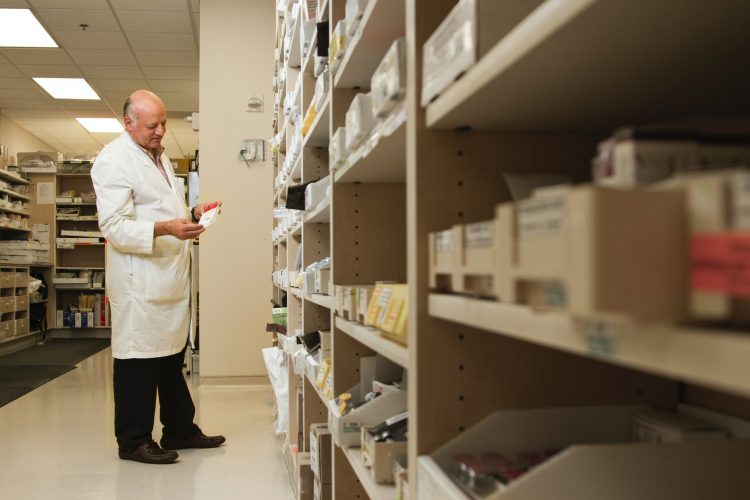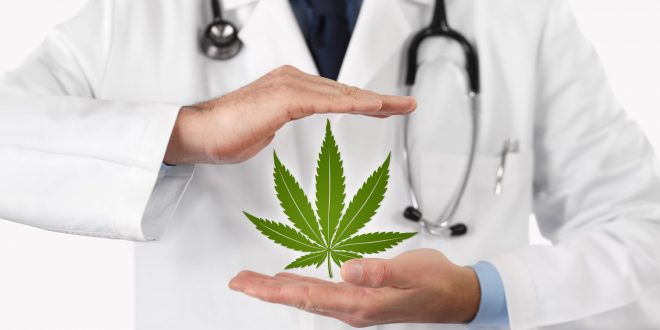Scheduling an appointment for a medical marijuana exam is different than going to your regular physician.
This doctor isn’t going to analyze your aches and pains and offer you solutions. He or she is licensed to examine you and see if you meet the qualifications to receive an MMJ card.
But even though they’re not using that time to treat you like an established patient, you still want someone who knows what they’re doing. Some doctors are so strict that almost no one qualifies. Other doctors are too lenient, and eventually, all the MMJ cards prescribed by them will be questioned.
You want your medical marijuana doctor to be professional, knowledgeable, and ethical. To choose the best physician for you, follow these tips before you make an appointment!
1. Ask for Recommendations

Word-of-mouth from your trusted friends and relatives is the first way to find a good medical marijuana doctor near you. Social media is often another way that people get recommendations. But because of the sensitivity of the topic, you might not want to go that route.
If you do, you’ll probably hear a lot of good and bad things about most doctors. Take the criticism with a grain of salt unless you hear the same complaints over and over.
2. Check the State Requirements
The state is in charge of determining the conditions for an MMJ card and the licenses that doctors must have to distribute them.
Some states require DEA certification as well as specific licenses and training. Physicians in Florida, for instance, have to be an MD or a DO and can’t have any restrictions or conditions on their medical licenses.
Unfortunately, cannabis is becoming a very lucrative industry, but it’s also not regulated consistently. Because of that, there are MMJ card scams happening all the time. It’s up to you to verify that your physician has the legal right to assign your card to you.
If you plan on moving out of state or traveling frequently, ask your doctor about reciprocity between states. Reciprocity laws mean that you can buy medical marijuana with an out-of-state card.
This article by Veriheal has an updated list of the states that do allow MMJ cardholders to purchase their products in another state.
3. Walk Away if It Doesn’t Seem Legit

Do you know the “too good to be true” saying? It applies to your medical marijuana card physician, as well.
Legally, during your exam, your doctor should ask you for proof of a previous diagnosis. An MMJ doctor is not allowed to give you a diagnosis at the time of your evaluation. In fact, it’s illegal.
To obtain your MMJ card, you need to bring in medical records that show your diagnosis and any prior treatment you’ve attempted.
The physician is going to have to use those records to document their final approval or denial. If you don’t have them, they should request that you reschedule. If they say it’s not a big deal, that’s a red flag.
There are some legitimate platforms that will help you find a reputable MMJ doctor in your area. If you’re considering a physician and you’re not sure if they’re credible, check with the platforms to see if they have them listed.
4. Avoid “Floating” Clinics
Floating clinics are becoming more popular today because they’re an easy, cheap way to scam patients.
Rock-bottom prices attract a lot of people anxious to get an MMJ card. Because it’s not cheap to pay the fees to get started, floating clinics prey on those looking for a way around the cost.
But the physician you choose needs to be trained and licensed to recommend an MMJ card. Floating clinics aren’t always legal.
There is also a lot of turnover in those practices. If you have a problem, it’s hard to track down the clinic to fix it. Even if you can find the clinic again, you probably won’t see the physician who prescribed you your card.
5. Ask Around About Their Ethics

A lot of physicians who are licensed to give out MMJ cards have been established in their clinics for a long time. That means they already have a reputation in the medical field. Use that reputation to see if they’re ethical or out to make a quick buck.
Those kinds of doctors are known to milk the system by requiring expensive and unnecessary fees. If a friend recommends a doctor to you, ask them if they have to do any of the following:
- Have multiple follow-up visits
- Pay excessive fees
- Pay extra for the “benefit” of smoking permission or to work around limits on the methods they can use
- Have quick, short visits without any patient education information given
If any of these sound familiar, the physician may not be entirely ethical. They could be running “bulk” scams, where they give you the recommendation but never turn their approval to the state because you didn’t pay that fee, too.
Yes, your card could be legitimate, but if the doctor’s ethics are called into question later, so might your MMJ license. Choose a doctor that will walk you through the process from start to finish. Their license is on the line, too.
If they’re concerned about that because they’re professional and ethical, they’ll take their time with you. Marijuana is still a very controversial topic, and MMJ providers are under a microscope. If your physician doesn’t seem to care, you should find another one. And, if your friend or family member’s doctor is taking those shortcuts, you might need to suggest they find someone new, too.
Conclusion
Finding a reputable physician to prescribe you a medical marijuana card is important. They can’t be too lenient or too harsh—they have to be just right.
This article will help you find a good doctor in your area or make sure the one you’re thinking of using is legitimate. Having the education and training isn’t enough. They need to have ethics and professionalism, too!
Medical marijuana card scams are cropping up everywhere. Don’t go anywhere without doing your research first.
 Hi Boox Popular Magazine 2024
Hi Boox Popular Magazine 2024



